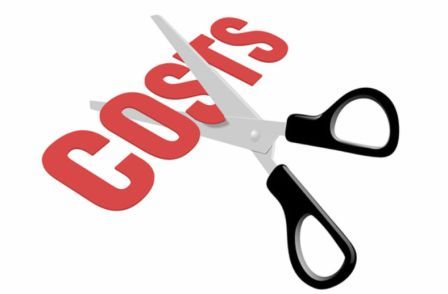Just like how you need to crack a few eggs to make an omelet, they say you need to spend money to make money. The unfortunate fact is that the more you spend, the less you have in your company bank account at the end of every month. If you’re looking to increase on savings, here are some top tips on how you can cut down on business costs.
Outsource Tasks
One of the most expensive assets that any business has is its staff members. Not only do you have to pay them a salary, but you may also need to pay for extra equipment to allow them to do their job. Consider whether you can outsource any of the tasks currently done by full-time members of staff. Because, sometimes outsourcing may be right strategy for your business. Whilst it might be sad to see a staff member go, it could be the difference the business making a comfortable profit or a worrying loss.
Outsourcing jobs could not only save you money but bring extra expertise into the business. For example, if you pay for one person to look after your IT equipment in your office, you are limited to what that one employee knows. If you outsource your IT needs to an outside company, you will have a team of experts whose combined knowledge can come up with the best solution for any problem. For example, the team at Stronghold Services Corporation will support you when your equipment fails, but also help create a recovery plan to get you back up and running. They also specialize in helping you back up your data, protect your data from cyber-attacks and could even help your teams collaborate using cloud software.
Reduce Waste
Depending on what business you run, much of your money could be tied up in stock. You only make a profit once that stock sells. If you sell things with a short sell-by date, like food or flowers, you could find yourself throwing away thousands of dollars of stock every month. Monitor how your products are selling. For example, if you’re a bakery, you shouldn’t be making the same amount of every flavor of the cake. Instead, monitor carefully which cakes are selling in higher qualities than others and alter your stock production accordingly. Of course, if you run out of stock, you’ll find your business is unable to make any profit, so don’t restrict your production too much.
Consider Whether The Business Needs Everything It Owns
If your business owns a number of big assets, consider whether the company needs any of them. For example, if you have a vehicle that rarely leaves the car park, you could be wasting money on insuring it and making sure it’s road legal. If you have more than one premises, consider whether you could downsize and save money on rent and other expenses. Selling either of these items could also inject a large sum of money into the business that could allow you to invest in things your business needs.
